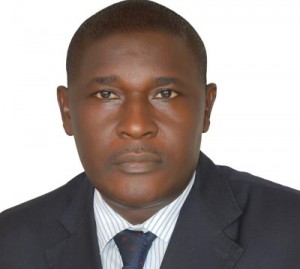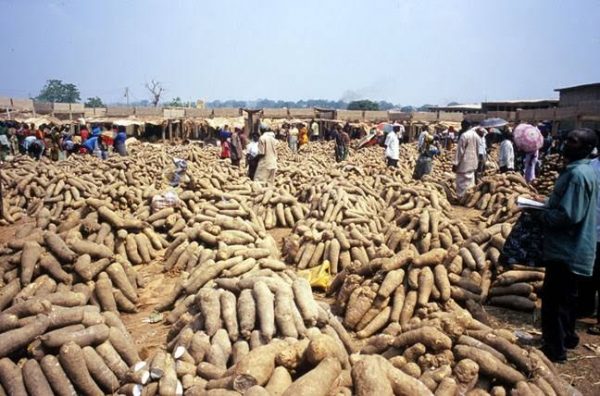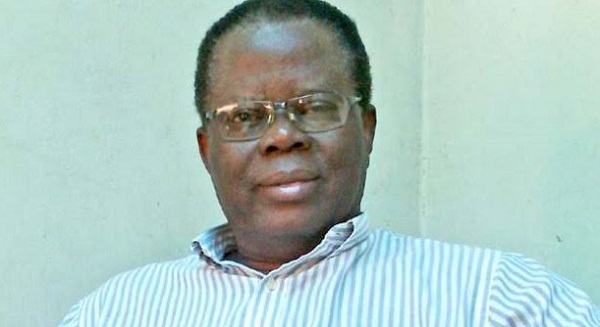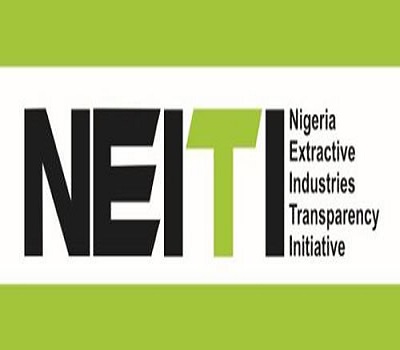What Makes A Good Auditor In Shipping Business

Dr. Sunny Maduka is the Chief Auditor of the Nigerian Ports Authority (NPA), Tin Can Complex. He was one of the recipients of NPA’s recent long service awards. At the event, Dr. Maduka narrates his near death experience at NPA having spent over three decades at the Authority where he fetched his wife. Maduka also gave an appraisal of the Nigerian transport sector, highlighting major challenges and prospects.
Excerpts:
You have been at the Nigerian Ports Authority (NPA) for over three decades. With benefit of hindsight, how would you recall your experience?
Well, it has been with mixed feelings but the most important thing is that we are still alive. Some people started with us but they are dead. Some left the Authority while some others were kicked out. Those who were fired are the ones I feel sorry about. They left prematurely due to the change in government policy and I am dedicating my long service award to them because they left at their prime ages. I wish we are all here today to celebrate together.
The job of an auditor in any organization usually brings despair, but you seem to be loved by your colleagues. How have you been able to manage this over the years?
Everything about life hinges on how you relate with people. Auditor is just a name, what makes one an auditor is the person. Everybody has a way of interacting so you have to find a way to relate with people. Notwithstanding, the job of an auditor is a thankless job because nobody wants to be checked. The secret is that when you are approaching people, treat them well because they are humans. Let them know your findings would help them do their jobs better. Do not approach them like you are going to witch-hunt them. There is a difference between witch-hunting and saying; let us put our heads together to appraise your performance and see if there is a way to perform better. I don’t approach auditing job from the angle of indicting anybody. Rather, the idea is to appraise together and learn better ways of doing things. If I am in auditing the Accounts department and I see differences, my first inclination is to say perhaps it was a mistake, I don’t look at such things immediately as fraud. The job is all about perception, organization and the auditor must find a good way to relate with people as he carries out his duties.
Over the years, have you had conflicts with other employees as result of your job obligation?
Definitely, I couldn’t have worked for over 30 years without having such issues. Most times you could get hacked by the back because people feel you are too hard. Sometimes, during your investigations you could discover something that is bad and the culprits wouldn’t want it to be revealed and remember that some of our auditors have been victims as they died in the process of auditing. These are some of the reasons why I started by saying my experience in NPA is with mixed feelings.
I had tough times in almost all the ports that I worked. I don’t know how to start describing it because it wasn’t just one scenario or two. The basic thing is that when you do things with a clear mind no harm can get to you. All the things I did in the past were open and I carried out my actions with the disposition that these were my colleagues. I think that has enabled me to last so long on the job and when bad things were about to happen, I was able to get some hint and take off. In Warri, it was a very strange and scary experience for me, all through my stay in Warri I stayed in a hotel because the terrain was so tensed.
Can you narrate any strange experience during your stay in Warri?
My first day in Warri was during the heydays of militancy. I recall my first day in office I was welcomed with bullets and gunshots. Everybody took off that day and nobody knew who the actual target was. The major thing was that nobody got hurt but that experience is one which keeps me apprehensive of this auditor’s job each time I remember it.
Who was the Managing Director of NPA when you joined?
It was Wale Ahmed.
You are also a writer with several published books and movies. How do you combine this job and writing?
If we say that we are the image of God because God created us to be like himself then we can’t be mono-functional. We must be multifunctional. The definition of a person’s functionality should be in line with what God is since we are functioning according to God’s attributes. I was discussing with a friend few minutes ago about a book I am reviewing internationally on “Integrated Leadership Approach”. I also have a book that I intend to use for my retirement, titled, “Retire Now, Retire Happy” and I am writing another book on the Nigerian transport sector.
I have equally gone into script writing for movies. I read Accounting, MBA in Finance. I am also qualified as an accountant. It gives you the idea of the multi-functionality of humans but you have to open it up in order to be like God. When I see someone who says,” I can’t do this” I am worried because I know it only takes a little conviction and saying “Yes I can”.
If you look at various seminars I have done recently, you will observe that they are not similar. They are different presentations but after each one, I am always happy. When I look back to some of my books, movies, and presentations, I realize that it was God who gave me the strength and wisdom.
How would you describe the transformation in NPA since you joined the Authority,especially the changes following the port concessioning?
This would be comparing Nigeria in the 1980’s and the Nigeria today. Things were a bit predictable back then but today everything is unpredictable because the government has brought in politics into everything. There are professionals running the ports today and modern equipments hence, more productivity of our ports. NPA functions as the landlord today because private terminals operators have taken over. This means NPA has more to thinker in terms of policies and the management we have in NPA is a youthful and industrious one led by our amiable Managing Director, Ms. Hadiza Bala-Usman. She has a focus and vision, hence you can see that she wants the Authority to attain greater heights.
What are the major problems affecting NPA and the nation’s maritime industry at large?
Our ports access roads are bad. The port system revolves around the port access roads as well as the waters. The system must function optimally. The roads, vehicles, seas, port operators, e.t.c have a role to play in order to guarantee an efficient port system. If the adjoining road network is having problems it would definitely affect the entire sector.A policy collaboration would be needed to ensure that our roads and railways are functional .
It would be unfair for an importer to get this 40ft container safely arrive Nigeria but he is not sure if it would safely get to his warehouse. Another danger of the poor state of port roads is that these trucks and tankers could fall on the smaller vehicles and kill people. The situation in Tin Can port environs where you see tank farms clustering the place is also very bad.
Sometime ago I asked when you would be writing a book on the Nigerian Transport sector. Today, you have written one. Tell us about the book and how relevant it is to transforming the nation’s transport sector?
Transport system in Nigeria is so complicated. Honesty, I don’t know where to start. The major problem is that we don’t have a long term transport masterplan. What we have been doing is just trial and error. That is why you see palliative measures on the roads every year. You don’t do that on roads that carry heavy duty vehicles all the time. Nigeria ought to have a plan to say in the next five years for instance, all port access roads must be solidified. We should be able to create and maintain railways and waterways in order to reduce the burden on the roads. The distance between Tin Can and Apapa is a short one, can we link it via rail? These are some of the things we should looking at.
However, there are also prospects for transport sector in Nigeria but private individuals would have to run it. The nation’s economic and political systems remain unstable and no private investor would be willing to invest in an economic system that is unstable. Most of the abandoned projects in the country are as a result of changes in administration because a new government takes over without appraising the uncompleted projects of its predecessors to improve them.
The security situation in Nigeria also wouldn’t allow you move your goods at night because it is unsafe. This adds to the traffic gridlock observed during the day. Most of our roads are not properly lighted. You can imagine the kind of accidents that would befall those who dare carry their goods on the road at night. When you go abroad you find that the whole place is properly lighted especially port access roads so that containers can move at any point in time.
How about your book on transportation, what is the title?
Well, I am still working on it. As soon as it is ready I would speak about it. The book is basically to address the problems in Nigeria’s transport sector because the shipping and port industry is a multi-trillion business. There is a lot that has to be addressed in that book. That is why i am taking my time to work on it. It would be a gift to the industry including port operators, transport institutes, etc.
What is your assessment of the Minister of Transportation, Hon. Rotimi Amaechi and what advice can you proffer to the Minister as he thrives to transform the sector?
He is a versatile person and he has shown good administrative traits since he came in as Minister. However, I keep wondering why we never put people who are veterans in such sensitive positions. The transportation and port sector is one that need expertise but I’m still working for NPA so I can’t say much. My only advice is that Nigeria should always put experts in certain sectors of the economy. If we don’t do this, it would take some time before whoever gets in settles down to understand the sector.
In this modern era, business is not only adjudged by profit but also the relationship with stakeholders. You must be able to know the stakeholders within your industry such as your customers, suppliers, host communities, workers, etc.
Recently, I was travelling to Benin from Lagos via the road and I was not happy to see that the roads been constructed had no provision for railways. If they decide to create a railway from Lagos to Benin they would have to break the roads. We could have a plan to create the holes for wires, poles, chambers, etc. so that when the government decides to put railway, they wouldn’t have to dig across the road. It is only logical that roads being constructed today should have provision for the rail.
Your wife is also an auditor in NPA. Did you meet in NPA, how has the experience been?
Yes, we met in NPA. It has been a good experience especially as both of us are auditors. NPA has definitely benefitted more from our marriage because most times we sit together at home to talk about NPA work, auditing and investigations, amongst others just to see how to make NPA better. My wife and I have been happy working in the Authority. This award ought to be 5years, 10years,15years, 20years but we have been here for 30years. I hope the new management would ensure that workers are duly recognized and appreciated at the various stages.
By Kenneth Jukpor







